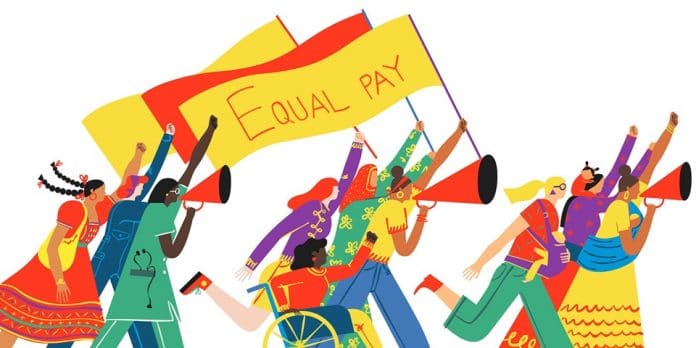At the current speed, it will take more than two hundred and fifty years until women and men receive equal pay. Today, 25 years after the Fourth World Conference on Women in Beijing, where countries around the world committed themselves to ensure “equal pay for equal work”, no country has yet achieved gender parity in wages.
On 18 September, the United Nations celebrates its first-ever International Equal Pay Day to build momentum around the urgent need to address the gender pay gap.
Equal payday… in year 2277
During the Fourth World Conference on Women on 4 to 15 September 1995 which was concluded with the historic Beijing Declaration and Platform for Action, governments around the world committed themselves to “enact and enforce legislation to guarantee the rights of women and men to equal pay for equal work or work of equal value”. According to the World Economic Forum Global Gender Gap Report, issued on 17 December 2019, it will not be until the year 2277 that women, on average, can expect equal pay for work of equal value.
Globally, a woman earns 77 cents every time a man makes a dollar, in the European Union a woman gets 84 cents every time a man is paid an euro, and progress on narrowing the pay gap is slow. And evidence suggests that progress in closing the gender pay gap may stall or reverse due to COVID-19 and its fallout.
Together for Gender Parity in Wages
On 18 September, the first-ever International Equal Pay Day sheds light on the achievements and the ongoing efforts to be made to ensure that no woman is economically punished for being female.
According to UN Secretary-General, António Guterres, International Equal Pay is the occasion to address the mechanisms that block gender parity in wages.
“We need to ask why women are relegated to lower-paid work; why professions that are female-dominated have lower salaries – including jobs in the care sector; why so many women work part-time; why women see their wages decrease with motherhood while men with children often enjoy a salary boost; and why women hit a ceiling in higher-earning professions,” the Secretary-General said in his message on the Day adding that “equal pay is essential not only for women, but to build a world of dignity and justice for all.”
Equal pay builds on the UN commitment to human rights and against all forms of discrimination, including discrimination against women and girls. Closing the pay gap is quintessential for achieving the Sustainable Development Goals, particularly Goal 5 on achieving gender equality and empowering all women and girls and Goal 8.5 on ensuring equal pay for work of equal value.
In commemoration of International Equal Pay Day, the Equal Pay International Coalition will host a virtual global event and Call to Action to encourage all labour market actors, decision-makers and civil society to take the necessary steps to ensure gender parity in wages as envisioned in the Beijing Declaration.
Closing the pay gap is not easy. According to ILO, the sizable differences in the estimates on gender imparity serve as a barrier for political action rather than a driving force for change. This is further complicated by the fact that, among high-income countries, much of the remaining pay gap is ‘unaccounted’ for, meaning that it cannot be explained by factors such as differences in educational levels. Rather it is rooted in enduring systematic inequalities such as discriminatory hiring practices and promotion decisions that prevent women from gaining leadership roles and highly paid positions.
Changing these systemic injustices will not happen overnight, but it is possible. On International Equal Pay Day, decision-makers, labour market actors and civil society are invited to help build momentum around the efforts that must be made to close the gender pay gap.
Join the campaign on Social Media and share the material available here.


